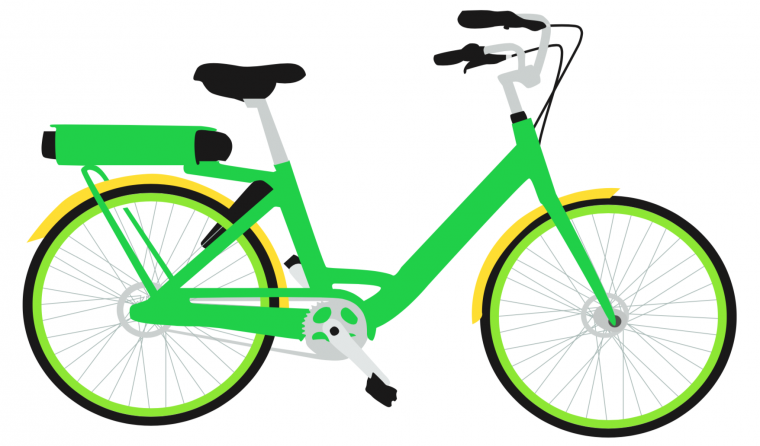WU: In Focus
Opinion: How to save money: Because not all of us are from the top 20th percentile
Washington University is expensive. The cost of tuition is exorbitant, room and board fees are insane and meal plans are mandatory. All of those big numbers add up to an even bigger number, not to mention the extra costs beyond that (a laptop, school supplies, textbooks, the list goes on). Not only are those costs on top of everything else, many are unexpected.
According to the New York Times, 84 percent of our students come from the top 20th percentile of family incomes in the United States. Student Life’s own survey results reflect a similar trend, with 76 percent of students polled coming from families with an annual household income of $100,000 or more. Students coming from a different socioeconomic background tend to find themselves in a community where saving money isn’t everyone else’s top priority. With that in mind, here are some of the best hacks to save money that I’ve encountered.

Textbooks
You’ve probably heard this before, but if you haven’t, don’t buy your textbooks early and don’t buy them through the campus bookstore. First, you may change your mind about wanting to be in the class. Second, the professor might never use the textbook, so wait it out for a bit to decide if you need it. Third, you might be able to find the textbook online for free or exponentially cheaper.
On-campus employment
Wash. U. has a federal work-study program, and this can be a great opportunity for people who qualify. Essentially, it’s part-time employment one can have in a variety of disciplines provided by the University. Students are typically keyed into the program before they arrive, but on-campus jobs regardless are something worth looking into. There are plenty of on-campus work opportunities that may even be inside your discipline of interest that you might explore outside the work-study program.
Coupons, gift cards and student deals
On the back of every Schnucks receipt is a coupon for a $10.99 Sports Clips haircut, which is close to $5 off a regular Sports Clips haircut. If you’re going to have to get a haircut, and you buy groceries at Schnucks, this is a small steal. Another win-win scenario is for people who are committed to paying to stream movies and music. While the Spotify Premium and Hulu package deal would normally cost $12.99 a month, you can get Spotify, Hulu and Showtime for only $4.99 a month with the student discount. In general, if there’s an option to register as a student for a discount, a coupon on the back of a receipt or a gift card lying around from your high school graduation party, use it.

Enterprise CarShare and Lime bikes and scooters
These options are much cheaper than paying to have a car on campus or constantly paying out of pocket for Ubers or Lyfts. The Enterprise CarShare just requires you to register with Enterprise and let them make a small check on your driving record, and you can reserve to use the Enterprise cars available on campus. Lime bikes and scooters require a bit more physical activity but are still a cheap option, costing only $1 to unlock if you need to get somewhere in a hurry.
Bear Bucks vs. Meal Points
Because you have to pay more than a dollar for each individual meal point, but pay a direct conversion for Bear Bucks, using Bear Bucks is actually more cost effective than using meal points. Students are required to purchase a meal plan, so the best course of action is to buy the smallest one (if you live on campus it’s the Bronze Plan). You should use up those meal points at whatever rate makes most sense to you (regardless of the recommendations), and then if you run out, try to buy meal points from someone for less than $1 each or use Bear Bucks for the rest of the school year.
Psychological Studies
Wash. U.’s Psychological and Brain Sciences Department conducts research year-round. Many of their studies require extensive participant pools and rely heavily on college students. With that in mind, studies often come with some form of compensation and/or credit option. If you participate in a study outside of receiving credit for a psychology course, you can receive payment for your participation. Check out the Sona website for available studies.
SWAP and Facebook Free and For Sale
Getting involved in any community spaces, whether online or in person, that promote giveaways, trading and bargaining is a good idea. Sharing With a Purpose, or SWAP, is a sustainable marketplace on the South 40 where students can take items or donate items for free, such as clothing. Wash. U. also has a “Free and For Sale” page on Facebook that facilitates the buying and selling of items that can either make you money or expose you to incredible deals on items that people just need to get rid of.
Make the right friends
Not everyone at Wash. U. gets it. Some people want to go out to eat every night or “accidentally” leave your Venmo request unfulfilled or don’t understand why you just don’t ask your parents for money. Some people don’t have to work or worry about bills or plan how to pay for the next semester’s tuition. Finding friends that understand your financial reality and are sensitive to it will be a great asset to you in your time at Wash. U. These people will keep your financial needs in mind before scheduling an extravagant spring break trip you can’t afford to go on or booking a reservation at a restaurant where you’ll just have to order a soda and pretend you’re not hungry. Find friends that recognize your needs and you’ll not only save money, but you’ll invest in someone that’s invested in you, too.
